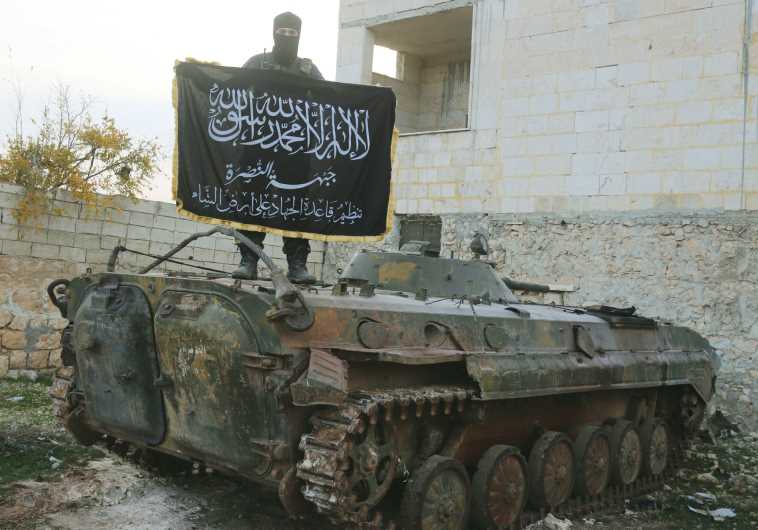Syria’s Assad and the Arab League at a crossroads – analysis
Syria is returning to the Arab League this week in meetings in Saudi Arabia that are expected to be watched closely in the region and globally. Syrian President Bashar al-Assad is expected to attend the League summit on Friday.
Syria was only recently invited back to the League under conditions, after more than a decade of civil war in the country. Western countries such as the US and Germany have expressed concern about the welcome mat being handed to Syria.
“He will come to attend this summit,” Syrian Foreign Minister Faisal Mekdad told Lebanon’s Al-Jadeed TV on Wednesday, according to France24. The Arab states, led by Saudi Arabia and several other Gulf countries, as well as Egypt, have been at the forefront of attempts to normalize relations with Syria. The goal in their view is to return the region to stability.
Return to stability
After the Arab Spring uprisings in Tunisia and Egypt, protests also began in Syria and Bahrain. In Syria however, the regime began a brutal crackdown and Saudi Arabia backed Bahraini actions to stop the protests.
While some countries like Qatar and Turkey backed the Syrian rebels, the rapidity with which the rebels were coopted and sidetracked by extremist groups worried many in the region. ISIS and local versions of al-Qaeda, for instance, pushed the rebels aside in parts of Syria. This developed into a major threat.
 A member of al-Qaida’s Nusra Front fighting with other Sunni Islamists in support of the Syrian opposition pose on a tank near Aleppo in November 2014. (credit: REUTERS)
A member of al-Qaida’s Nusra Front fighting with other Sunni Islamists in support of the Syrian opposition pose on a tank near Aleppo in November 2014. (credit: REUTERS)Iran intervened in Syria in 2012, Russia intervened in 2015 and later the US also sent forces to eastern Syria to fight alongside the SDF to defeat ISIS. Turkey then invaded Syria in 2016 and continued to take over and occupy areas such as Afrin, expelling Kurds and inviting mostly-Arab rebel groups to resettle in Afrin and Idlib.
All of this has led the Arab League states to wonder if reconciling with Syria’s regime might help settle the Syrian conflict. Russia has also hosted Syria, Iran and Turkey to try to bring these countries together.
Al-Ain media in the Gulf has said that the Arab League preparatory meeting in Jeddah has given some curtain raisers on the important issues facing the Arab states.
Important issues for the Arab League
Algeria handed over the rotating presidency to Saudi Arabia this week. Algeria’s foreign minister said the meeting is taking place amid important international developments and challenges. “The transformations that the world is currently witnessing and what it predicts of reshaping the balance of power must stop us to study and explore ways to adapt to them and contribute as a unified group in shaping the features of a system of international relations that we want to be based on the equal sovereignty of states and equal security and balance,” he said.
While bringing Syria in from the cold is one issue, the Arab delegates also want to discuss Sudan, which is now in the midst of its own civil war. The Arab states would like to see that conflict reduced.
This is a test. Can they move from pushing for stability in Syria to creating real stability in Sudan? Saudi Arabia’s Minister of Foreign Affairs, Prince Faisal bin Farhan says that the world is at a crossroads today, which can mean different things to different people.
One could say this means the region is entering a new diplomatic era, as Iran and Saudi Arabia have also reconciled. Some see it as part of the reduction of US influence and the emergence of the multi-polar world order that will see the rise of China, which brokered the Iran-Saudi deal and is receiving interest for more deals from the Gulf.
Iran and Russia are also working on new trade routes and the Gulf states are eyeing groups like the SCO and other multi-lateral frameworks to do work with China and Russia, which would essentially reduce the West’s role in the region. Many countries are also growing tired of what they see as Western lectures on “human rights” and other issues, and also the seeming Janus-face by which Western countries embrace Qatar, which hosted the Taliban, while sometimes distancing themselves from other states.
The Arab League Secretary-General Ahmed Aboul Gheit has praised the restoration of Syria’s seat in the grouping. “The conflict of major powers in Ukraine harms the international economy and global security,” he said. Mahamoud Ali Youssouf, the foreign minister of Djibouti also said this week that the meeting in Jeddah is a major opportunity to end the crisis in Sudan. “The conflict in Sudan is extremely serious,” Ali Youssouf, said, according to Arab News. “Serious in the sense that there are two armies, both well-equipped militarily, engaging in combat in urban areas, specifically in the capital, resulting in damage, the loss of human life, and the displacement of the population.”





Comments are closed.